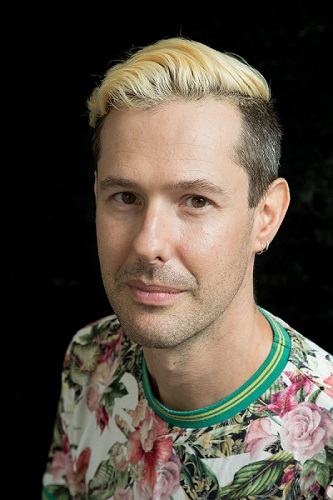Liam Livings Considers Language And Diversity
20 November 2019
 Liam Livings, the RNA’s diversity and inclusion officer, offers some thoughts on a few topics that have been on his mind, and how they affect why and what he writes.
Liam Livings, the RNA’s diversity and inclusion officer, offers some thoughts on a few topics that have been on his mind, and how they affect why and what he writes.
Language moves on
Think of all of the new words we have added to the English language in the last 20 or so years. Some of them are about technology, of course. But so many of them are about ideas and concepts that didn’t exist even that long ago.
I think most people would find it inarguable that the N-word is now an unacceptable way of describing a black person. And yet, even as relatively recently as the 1970s, there were programmes on television in the UK using this sort of language and dismissing it as a joke. It’s very easy to dismiss something as a joke if it isn’t you who’s the butt of it.
Personally, I favour a properly punctuated and grammatically well-written text message. However, I have plenty of friends and members of family who don’t agree. And I suppose the main objective of language is to communicate. As long as you are able to do that, does it really matter whether someone is using perfect grammar and spelling?
My mum was once telling a story about someone she’d been on holiday with. She told me that she liked to listen to this person, and she said: “I knew that if I was blaje with her, and let her carry on talking, I would soon be able to dweedle it out of her.”
Obviously, she got the words blasé and wheedle wrong. However from the context of the sentence it was very obvious what she meant. And rather than laughing at her, since she is almost definitely dyslexic, I simply nodded, letting her get on with the story.
Language moves on. And with this, it gives us increasingly more ways to describe feelings, incidents, people, phenomena and things that weren’t possible a relatively short time ago.
When that language moves on, it usually indicates how attitudes also shift. The term ‘cis gender’ is relatively new: referring to someone who identifies as the same gender they were born with. The reason for this term is because it’s the opposite of trans: a person who identifies as a different gender to the one they were born with. It’s really no different to using heterosexual and homosexual – terms people are likely to be more familiar with.
Although no one is going to force people to use new words when they are first introduced, there does come a point after a certain amount of time that if you’re not using appropriate language you may be viewed as something of an anachronism. Being down with the kids isn’t just about using slang to describe things, it’s also about showing you understand that ‘we don’t use those words now’ and why.
In one of my books I have a main character, Kev, a gay man who also cross dresses as a woman. He does this on stage – which is like a performance like drag queens. But he also does this in his everyday life too – meeting his friends for a drink, going for dinner, when he dresses in more everyday women’s clothes. It depends how he feels at the time.
This story is set in the nineties and one character cautions Kev about a man he’s dating, warning Kev that this boyfriend may be with Kev not for who he is but the fact that he cross-dresses. The character tells Kev his boyfriend may be a [redacted] f***er. The editor asked me to remove this word because, although time period appropriate, and it was how the dodgy boyfriend may have described men like Kev in a pejorative way, it’s not a socially acceptable term now. I kept in the sentiment, the worry the friend was expressing to Kev and I replaced it with ‘transvestite’ f***er. This term is also time period appropriate, since in the nineties people tended to say ‘trans’ less than they do now.




